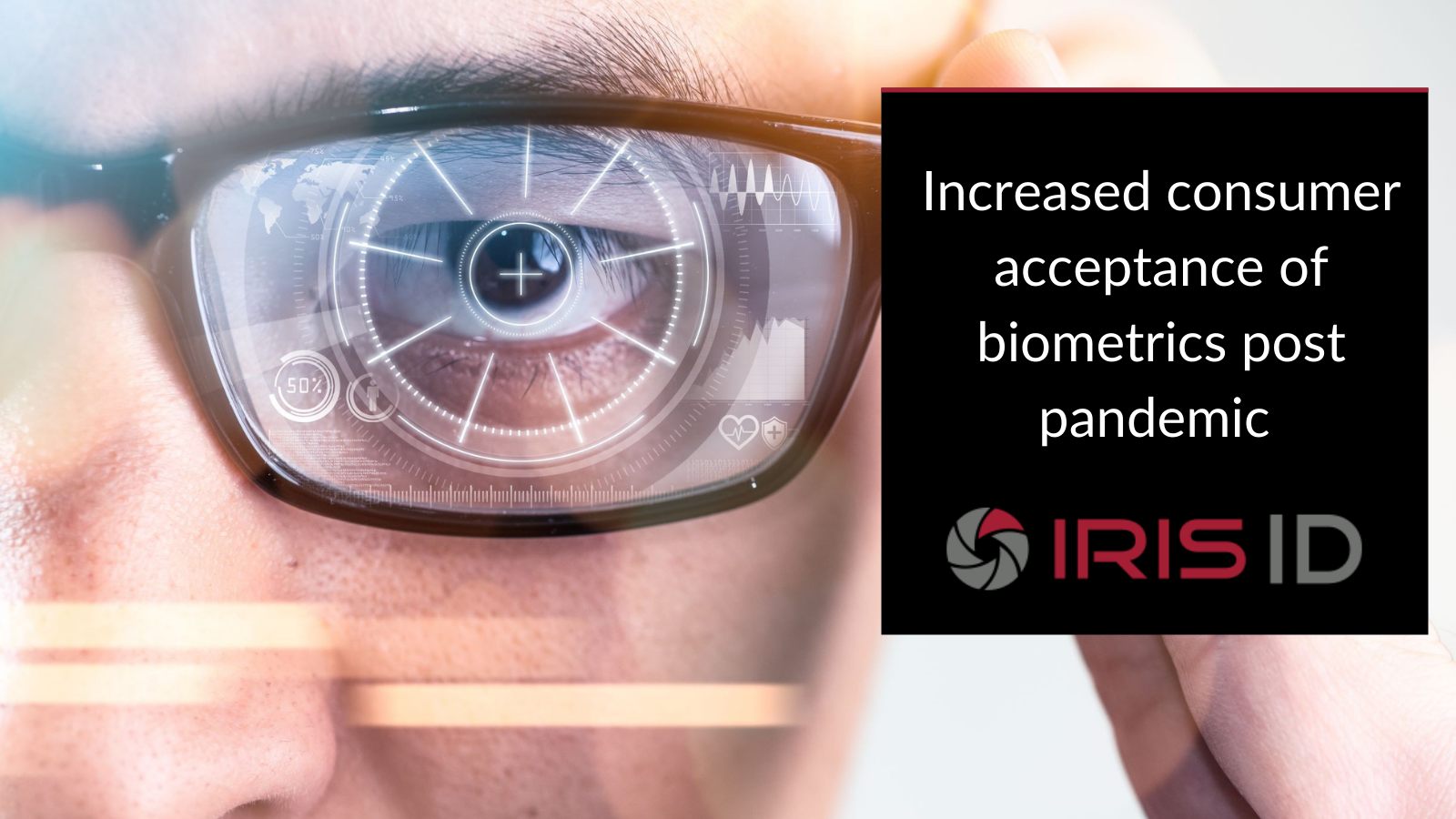A recent consumer survey shows a growing acceptance of biometric technologies. Nearly half (46%) of respondents said biometrics made their lives easier to deal with during the COVID-19 pandemic. Biometric comfort levels are up significantly over a similar study conducted two years ago.
The survey, conducted by GetApp, an online ecosystem of business app and software discovery platforms, showed a 31% increase in consumer comfort with iris recognition since 2020. It seems the pandemic helped push contactless biometric technologies such as iris and facial recognition into the mainstream.
It’s easy to see why more people appreciate the speed, accuracy and touchless benefits of iris biometrics – especially during a lengthy pandemic. Increasing numbers of airport, hospitals, manufacturing plants, data centers and government facilities use iris biometric systems.
The GetApp survey respondents said they’re comfortable sharing biometric data for security purposes such as passport control. However, majorities expressed concerns about potential data breaches and invasion of privacy related to sharing their data.
These concerns indicate the work still facing us in the biometric industry. Iris scan templates are encrypted, so they cannot be reverted and re-engineered for identification purposes. And the use of iris biometrics provides far greater privacy than other common forms of identification such as access control cards, passports or driver’s licenses. Implementation of iris biometrics provides an envelope of security for the protection of individuals’ privacy.
It’s understandable people often are wary of newer technologies. But biometrics are designed for the highest available level of identification while protecting against hackers and others looking to gain from another person’s identity.

